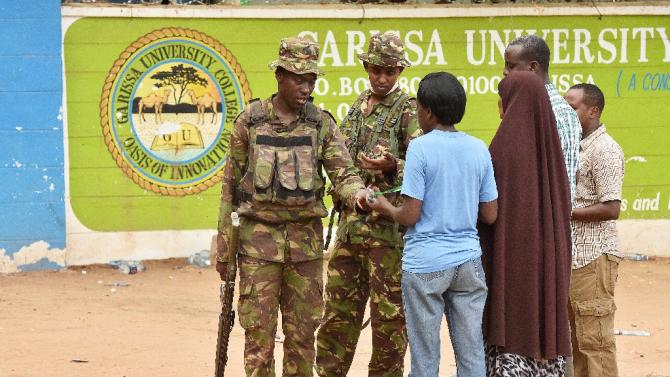Nairobi (AFP) - Kenya's
police chief issued Wednesday a list of 85 people and companies,
including at least 13 key money transfer companies, of suspected links
to Somalia's Al-Qaeda-linked Shebab.
Top of the list issued in an official government
gazette notice was alleged Shebab commander Mohamed Mohamud, said to be
the mastermind behind the university massacre of almost 150 people last
week. But the list also included money transfer companies that provide a crucial way for relatives to send lifeline remittances to war-torn Somalia, including Dahabshill, one of the most important transfer companies across the wider Horn of Africa region.
Their suspension in Kenya would have major impact on money transfers, with aid agencies warning in the past their suspension would hit some of poorest people the hardest.
With no formal banking system in the impoverished country, diaspora Somalis turn to money transfer services to send money back home support their families, sending some
$1.3 billion (1.1 billion euros) each year, dwarfing foreign aid.
Kenyan President Uhuru Kenyatta on Saturday warned Shebab fighters his government will respond to their killing of almost 148 mainly students in the "severest way" possible, with warplanes on Monday attacking Islamist bases in southern Somalia.
But Kenyatta also warned that the masterminds behind last Thursday's attack were inside Kenya, not Somalia.
"The planners and financiers of this brutality are deeply embedded in our communities," he said.
"We will not allow them to continue their lives as normal, the full force of the law will be brought to bear with even greater intensity that has been the case in previous years."
The
notice, issued under Kenya's prevention of terrorism act, gives the
names listed 24 hours to demonstrate why they "should not be declared a
specified entity," signed by Kenya's police chief Joseph Boinett.
There
are huge flows of money both ways between the neighbouring nations, for
trade and business, as well as in lifeline remittances to war-torn
Somalia from relatives in the region.
The
day-long seige on Garissa University, situated near the border with
Somalia, claimed 148 lives, including 142 students, three police
officers and three soldiers.
The massacre was Kenya's deadliest attack since the 1998 bombing of the US embassy in Nairobi.


No comments:
Post a Comment